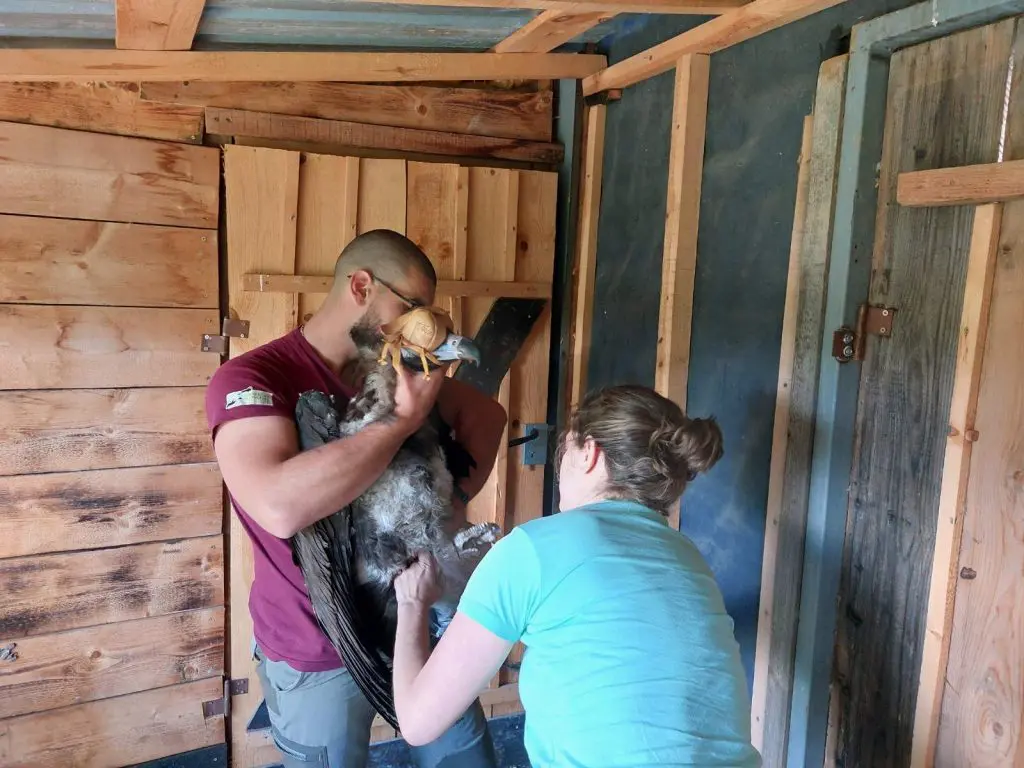
Three young cinereous vultures, named Boyan, Riga and Ostrava, will be the first cinereous (or Eurasian black) vultures to be released into the wild in Bulgaria as part of the ambitious Vultures Back to LIFE conservation project that aims to reintroduce the species to the country since the species was declared extinct many decades ago.
Cinereous Vulture Captive Breeding Network EEP
The three birds are donation by two European zoos which are part of the Cinereous Vulture Captive Breeding Network run by Planckendael Zoo in Belgium. One of the birds will come from the Ostrava Zoo in the Czech Republic whilst the other two will come from Latvia’s Riga Zoo.
Releasing the birds into the wild
When they arrive in Bulgaria next week the three birds will be put on hacking platforms in adequate habitat, where they will be fed and monitored without any human contact, and from where they will eventually fledge . They will also be fitted with GPS satellite transmitters to enable the team to monitor their movements in the wild.
Cinereous vulture in Bulgaria
Once a common sight in Bulgaria until the 1930’s, the population of Europe’s largest vulture declined steadily until the species was declared extinct in the country in the 1980’s. Whilst individuals are sighted foraging in the country from the small population of 30 pairs found in neighbouring Greece’s Dadia National Park, the species is not thought to have bred in Bulgaria for decades.
Vultures Back to LIFE – Bright Future for Black Vulture in Bulgaria
Led by Green Balkans, federation of Bulgarian wildlife conservation organisations, the Vultures Back to LIFE project aims to establish a nesting population of cinereous vultures in Bulgaria as part of a wider programme to restore the vulture guild in the Balkan peninsula. The team will transfer and release in later years around 50 birds coming from Spain into the wild in Bulgaria as well as creating supplementary feeding stations and improving populations of wild herbivores, improving the nesting conditions and creating artificial nest sites and tackling some of the major threats to vultures in the country such as insulating electricity pylons.
The birds will be released on Wednesday 25 July.





